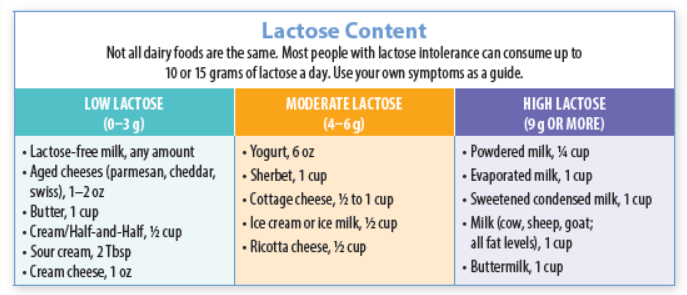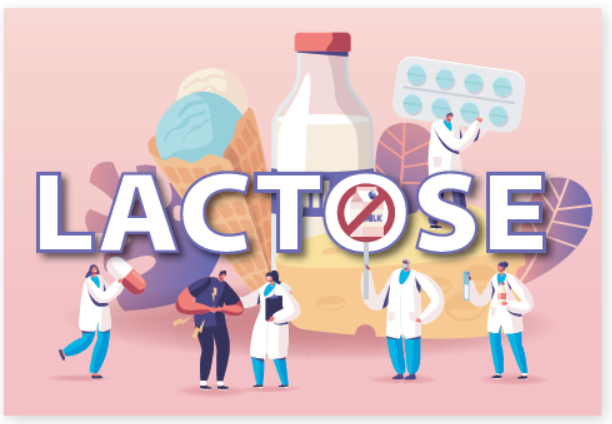If you are one of the estimated 30 million adults in the U.S. who feels bloated or develops diarrhea, gas, or a rumbling tummy after eating dairy products, you may not have a sufficient amount of the enzyme lactase in your small intestines to break down the milk sugar lactose. The beneficial microbes in your gut feast on the undigested lactose, resulting in those unpleasant side effects.
Production of lactase enzyme tends to wane after early childhood. Additionally, some people (including those of Asian, African, Native American, and/or Hispanic descent) are genetically predisposed to having low lactase levels.
People who have lactose intolerance can control their symptoms by limiting or avoiding lactose. This leads many people to unnecessarily avoid all dairy products when the real solution is often more nuanced.
Try these tips if you have trouble digesting lactose:
- Go Lactose-Free. Look for lactose-free products in the dairy aisle.
- Try Naturally Low-Lactose Dairy. Yogurt and aged (hard) cheeses are naturally lower in lactose than milk and soft cheeses.
- Try Enzymes. Lactase enzyme pills are readily available over the counter and may break down enough lactose to prevent symptoms when taken with or just before the consumption of foods containing lactose.
- Choose Fortified Substitutes. If you choose plant-based dairy substitutes, make sure they are fortified with calcium and vitamin D (and low in added sugars).
Dairy Benefits. While milk and milk products often get a bad rap, research shows that including some dairy products in your dietary pattern is a healthy choice. Higher intake of yogurt, for example, has been associated with lower risk of diabetes and weight gain, and some data indicate the same may be true for cheese. Dairy products are also the main source of calcium and vitamin D in the U.S. diet. “The latest data show most people in the U.S. don’t meet the recommendations for calcium or vitamin D intake,” says Alice H. Lichtenstein, DSc, a professor at the Friedman School and executive editor of Tufts Health & Nutrition Letter, “and individuals who avoid dairy are at even higher risk of falling short on these important nutrients.”
What to Do. If you suffer from lactose intolerance, you may be surprised at the many options available to keep dairy products in your diet. First of all, many people with lactose intolerance can actually tolerate a small amount of lactose without discomfort. “Most people with low lactase levels can tolerate at least 10 to 15 grams of lactose a day,” says John Leung, MD, director of the Center for Food Related Diseases at Tufts Medical Center. A six-ounce serving of yogurt has under six grams of lactose, as does a cup of cottage cheese (see Lactose Content chart for more information). Cultured and fermented dairy foods, such as yogurt, kefir (a fermented yogurt drink), and aged cheeses are often well tolerated because most of the lactose is broken down during the fermentation or aging process.
Consuming other foods along with dairy products and ingesting lactose in small amounts throughout the day rather than all at once may help limit discomfort. If you’re very sensitive, however, check labels for ingredients containing the word “milk” (like milk solids and malted milk) as well as whey, lactalbumin, casein, curds, ghee, and cheese flavors. Lactose is also used as a filler substance in a number of medications.
Today’s marketplace is rich in lactose-free milk, yogurt, and other dairy foods. Lactase enzymes have been added to these products to break down most of the lactose into simple sugars. Our taste buds detect of sweetness of these simple sugars more readily than they detect lactose, so these foods may taste slightly sweeter than the standard product. Ingesting lactase enzymes in the form of widely available over-the-counter chewable tablets or capsules is another option. “When taken with or just before the consumption of lactose, lactase enzyme pills may be helpful for preventing symptoms,” says Leung, “although individual results may vary.”



























